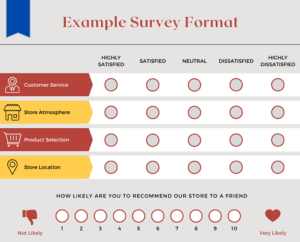In a world increasingly reliant on texting and email, making a phone call is a great way to stay in touch with clients. Similarly, emails are helpful for short and simple messages and often allow recipients to respond at their convenience. On the other hand, phone conversations are more personal and can help to resolve sensitive and potentially negative matters.
Phone calls are best for high-priority issues. They will not be lost in the inbox with a million other messages. In addition, they do not risk triggering strong emotions, which can lead to misinterpretations and assumptions. However, business email support protocol allows up to 24 hours of response time, while a phone call is much better for such occasions. A quick call can also help you brainstorm ideas that would otherwise get lost in the shuffle.
One of the edges of phone calls is the sense of distinction and respect. If you are talking about complex issues, people prefer phone calls because it is easier to answer questions and solve problems in real-time. Emails also provide a trail, making it easier to track issues down later. In addition, phone calls can be helpful in situations when both parties are not available at the same time. If you are a business owner, make sure to provide real-time support for your clients, either via mail outsourcing services or phone support.
In this blog, you will learn about the following:
- Notable Customer Support Stats
- Phone Call vs. Business Email Support
- Benefits of Phone Support Service
- Benefits of Email Support Service

Notable Customer Support Stats:
Both phone and email support have their merits. Email remains the preferred method for customers seeking a quick resolution to their problems. In fact, the first server is more likely to win 35 to 50% of sales. Further, a follow-up email sent within an hour increases the chance of success by seven times. Email is also more convenient and can be sent during lunch hours. Email support stats show that 54% of customers have used email customer service channels in the past year.
Although older customers are more comfortable calling phone support, younger ones do not. Most consumers rate good service by its response time. While others value helpful support over speed. 76 % of all customers prefer to contact customer service agents through phone calls. So, you need to bring the communication method your customers prefer. Having an omnichannel presence is a great idea when doing business in this age.
Phone Call vs. Business Email Support:
If you are unsure which is better for your business, read on to learn about the stats and benefits of both. Once you have compared both options, it is time to choose the one that works best for you. Here are the pros and cons of each. Whichever one you decide on, it is vital to assess your needs and choose the right one.
Benefits of Phone Support Service:
While both methods can provide quality customer support, a phone call is a better choice for many reasons. First, it is more personal, allowing customers to talk to a live person rather than an automated system. It also facilitates a more direct connection with a business, allowing it to engage with clients more effectively. Further, you can record phone-based support to avoid unclear conversations. It is one of the major aspects of making sure your customers do not face any inconvenience with your brand.
The most apparent benefit of phone support is its ability to provide instant feedback. In the case of a complex issue, a customer’s depiction may differ from that of the team. A phone chat can allow the customer to describe a problem more thoroughly, providing a dialogue that a human cannot offer via email. In addition, phone support is more suitable for customers with busy schedules.
The benefits of phone support over business email support are many. Telephone talks are more effective than email when it comes to collecting customer feedback. Emails can be processed in a matter of seconds, but a phone conversation can provide real feedback more quickly. Email can be more effective for research purposes, but phone calls can help businesses identify trends and meet customer expectations. As we mentioned earlier, the older generation is more comfortable with this mode of communication. However, it would be best to determine which support mode requires more attention and investment.
Benefits of Email Support Service:
While the phone has its advantages, it still might not be the most effective contact medium for some customer service. A call can diverge from the real problem fed by the client. An email can guarantee that the buyer’s inquiry is forwarded in the same format. Moreover, people do not know how long it will take before they hear from the support team. Additionally, it is more flexible to explain complex issues over email instead of back-and-forth phone calls. Repeated calls can also result in irate customers, which is not the case with email.
You can combine email support with phone calls. This way, both parties can confirm the conversation and have a point of reference afterward. However, about 73% of customer service managers say that support inquiries are becoming increasingly complex. As a result, brands should outsource support 24/7 live email support systems to keep pace with this shift in customer behavior.
Outsourced mail services still serve as the best choice for many businesses. However, it is important to note that while a phone call might be more convenient, an email support system still has its gains over its traditional counterpart.
Phone support takes the lead over email support for speed. As compared to a phone, email support can take a day or more to reply to. However, a phone conversation can be more effective in situations that require clarity or a more personalized approach. Emails are more personal. Unlike a phone call, an email does not have a text limit, allowing it to include links and attachments. Moreover, a phone call allows companies to solve customer queries in no time and free up staff time for other activities. At the same time, emails can often cause problems by consuming valuable time. In the end, it is you who have to decide what matters the most for your target audience.
Deliver Great Customer Support Service with DOS:
Businesses should always provide both types of customer support. For instance, phone support is more personalized than email and live chat, which are both great ways to get an answer quickly. However, phone support costs more than live chat, which is a key reason why companies should find a perfect balance between phone and business email support.
Digitech Outsourcing Solution (DOS) uses a blend of email and telephone support to resolve customer queries. We make sure to deliver great customer service, retaining the quality and timeliness of communication. Our staff is trained to make the most out of all the customer service channels. We listen to customer concerns and pain points for you.
We also help you improve by getting as much feedback as possible from your customers. It will help your business in the long run. To achieve maximum satisfaction, we also offer a free trial option. So join hands with DOS to avail the best customer support service today.





